-
 Bitcoin
Bitcoin $118,209.3536
1.16% -
 Ethereum
Ethereum $3,151.7546
5.98% -
 XRP
XRP $2.9277
2.35% -
 Tether USDt
Tether USDt $1.0000
0.00% -
 BNB
BNB $689.7099
1.26% -
 Solana
Solana $163.4270
1.91% -
 USDC
USDC $1.0000
0.02% -
 Dogecoin
Dogecoin $0.1983
3.74% -
 TRON
TRON $0.3008
0.51% -
 Cardano
Cardano $0.7435
2.86% -
 Hyperliquid
Hyperliquid $47.6547
-0.48% -
 Stellar
Stellar $0.4625
2.79% -
 Sui
Sui $3.9921
2.71% -
 Chainlink
Chainlink $16.0608
4.23% -
 Hedera
Hedera $0.2348
1.56% -
 Bitcoin Cash
Bitcoin Cash $496.6985
1.25% -
 Avalanche
Avalanche $21.9038
5.41% -
 UNUS SED LEO
UNUS SED LEO $8.8356
-1.88% -
 Shiba Inu
Shiba Inu $0.0...01364
5.31% -
 Toncoin
Toncoin $3.1102
4.35% -
 Litecoin
Litecoin $95.9756
3.59% -
 Polkadot
Polkadot $4.0925
5.78% -
 Monero
Monero $333.7622
-1.44% -
 Uniswap
Uniswap $9.1968
2.25% -
 Bitget Token
Bitget Token $4.6378
6.23% -
 Pepe
Pepe $0.0...01282
6.77% -
 Dai
Dai $1.0002
0.03% -
 Ethena USDe
Ethena USDe $1.0005
0.00% -
 Aave
Aave $329.9143
4.49% -
 Bittensor
Bittensor $441.4995
6.89%
Is the TRIX indicator reliable for crypto
The TRIX indicator helps crypto traders identify momentum shifts and potential trend reversals by smoothing price data through triple exponential moving averages.
Jul 11, 2025 at 01:00 pm
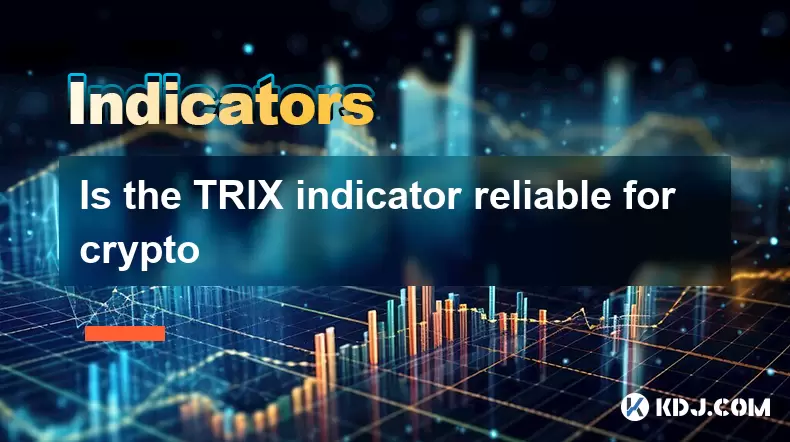
Understanding the TRIX Indicator in Cryptocurrency Trading
The TRIX indicator, short for Triple Exponential Average, is a momentum oscillator primarily used to identify oversold and overbought market conditions, as well as potential trend reversals. Originally developed for traditional financial markets, its application has extended into cryptocurrency trading due to the volatile nature of digital assets. The core mechanism behind TRIX involves smoothing price data through triple exponential moving averages, which helps filter out noise and provide clearer signals.
In crypto markets, where volatility can lead to misleading signals from simpler indicators, TRIX attempts to offer more refined insights. It oscillates around a zero line, with values above indicating bullish momentum and those below signaling bearish pressure. However, traders must be cautious about interpreting these readings without context from other tools or chart patterns.
How the TRIX Indicator Works in Crypto Markets
To compute TRIX, traders apply an exponential moving average (EMA) three times on closing prices, then calculate the percentage change between the current and previous triple-smoothed EMA. This process results in a line that fluctuates above and below zero, offering buy or sell signals when it crosses the centerline.
- Positive TRIX values suggest upward momentum, potentially signaling a buying opportunity.
- Negative TRIX values indicate downward movement, suggesting possible selling pressure.
- Crossovers above/below zero are often interpreted as trend confirmation points.
However, due to the lagging nature of EMAs, especially in fast-moving crypto markets, TRIX may not always capture sudden price swings effectively. Traders should consider combining it with volume indicators or support/resistance levels to improve accuracy.
Backtesting TRIX Performance in Cryptocurrency Charts
To assess the reliability of TRIX in crypto trading, many traders perform backtests using historical price data. These tests typically involve:
- Selecting a specific cryptocurrency pair (e.g., BTC/USDT).
- Setting up the standard TRIX configuration (often 14 periods).
- Marking past trades based on TRIX crossovers and divergences.
- Evaluating win rate, risk-reward ratio, and drawdowns.
While some traders report decent success rates during trending phases, others find TRIX less effective during consolidation or sideways markets. Notably, false signals become more frequent during low-volume periods or sudden regulatory announcements affecting crypto prices.
Common Misinterpretations of TRIX Signals in Crypto Trading
Despite its theoretical appeal, TRIX can mislead traders if applied without caution. One common mistake is treating every zero-line crossover as a trade entry signal. In reality, such crossings might coincide with minor pullbacks rather than significant trend shifts.
Another issue arises when traders ignore divergence analysis. For instance, if the price makes a new high but TRIX fails to confirm, this could be a warning sign of weakening momentum. Failing to recognize such discrepancies may result in entering trades against the actual trend.
Additionally, many newcomers overlook the importance of adjusting TRIX settings according to different cryptocurrencies. Highly volatile altcoins may require shorter lookback periods, while stable coins like USDC might necessitate longer ones.
Combining TRIX with Other Indicators for Better Results
Given the limitations of relying solely on TRIX, experienced traders integrate it with complementary tools to enhance decision-making. Popular combinations include:
- TRIX + RSI: Helps confirm whether momentum aligns with overbought or oversold levels.
- TRIX + MACD: Provides additional confirmation for trend strength and reversal possibilities.
- TRIX + Volume Profile: Validates price action and liquidity zones for better entry and exit timing.
Using candlestick patterns alongside TRIX can also refine trade setups. For example, spotting a bullish engulfing pattern along with a positive TRIX crossover increases confidence in a long trade setup.
Frequently Asked Questions About TRIX in Crypto Trading
Can TRIX be used effectively in highly volatile crypto markets?
Yes, TRIX can work in volatile environments, but adjustments may be necessary. Shorter timeframes or faster EMA settings might help adapt to rapid price movements, though they increase sensitivity to noise.
Does TRIX generate reliable signals during major news events?
During high-impact news events like regulatory changes or exchange hacks, TRIX may lag significantly. Price spikes or crashes often occur too quickly for the indicator to reflect accurate momentum, leading to delayed or false signals.
Is TRIX suitable for scalping in crypto?
While some scalpers use TRIX, it's generally not ideal for ultra-short-term strategies. Its calculation method introduces lag, which can cause missed entries or late exits in fast-paced scalping scenarios.
Are there alternative versions of TRIX designed specifically for crypto?
Currently, there are no widely adopted crypto-specific variants of TRIX. However, traders often customize parameters or combine it with volatility filters to better suit digital asset behavior.
Disclaimer:info@kdj.com
The information provided is not trading advice. kdj.com does not assume any responsibility for any investments made based on the information provided in this article. Cryptocurrencies are highly volatile and it is highly recommended that you invest with caution after thorough research!
If you believe that the content used on this website infringes your copyright, please contact us immediately (info@kdj.com) and we will delete it promptly.
- XRP Price: Higher Lows Hint at Potential Trend Shift?
- 2025-07-16 15:10:12
- Bitcoin, Crypto Casinos, and Bonuses: A New Yorker's Guide to Hitting the Jackpot
- 2025-07-16 15:15:12
- Bitcoin, Deutsche Bank, and Mainstream Adoption: A New Era?
- 2025-07-16 14:30:13
- Bitcoin's ETF Demand & Institutional Momentum: A NYC Perspective
- 2025-07-16 14:50:12
- Bitcoin's Bullish Run: Demand Surges, Correction Unlikely?
- 2025-07-16 12:30:12
- JPMorgan, Blockchain, and Stablecoins: A Wall Street Revolution?
- 2025-07-16 14:50:12
Related knowledge
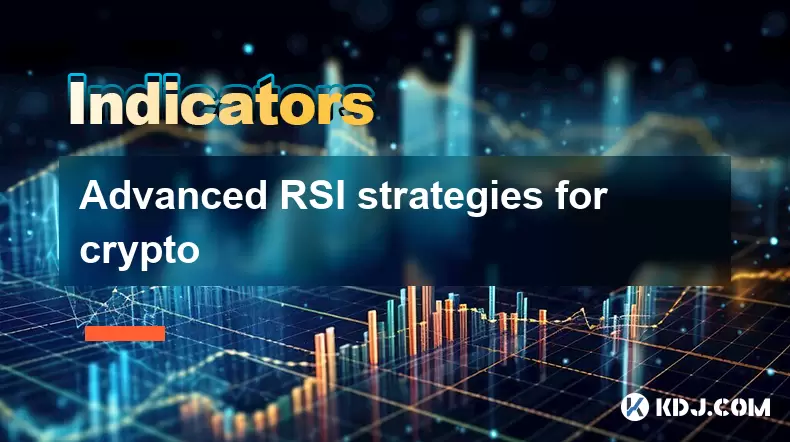
Advanced RSI strategies for crypto
Jul 13,2025 at 11:01am
Understanding the Basics of RSI in Cryptocurrency TradingThe Relative Strength Index (RSI) is a momentum oscillator used to measure the speed and chan...
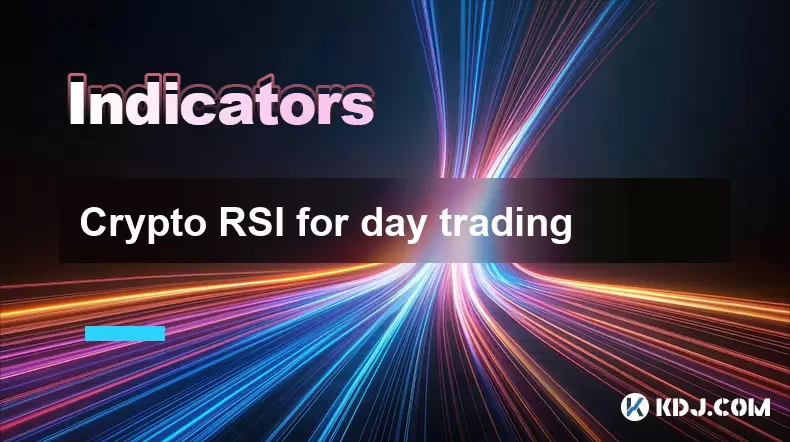
Crypto RSI for day trading
Jul 12,2025 at 11:14am
Understanding RSI in the Context of Cryptocurrency TradingThe Relative Strength Index (RSI) is a momentum oscillator used to measure the speed and cha...
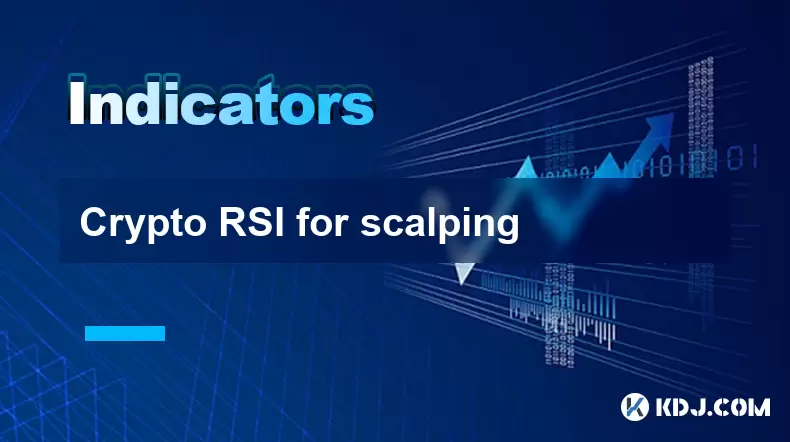
Crypto RSI for scalping
Jul 12,2025 at 11:00pm
Understanding RSI in the Context of Crypto TradingThe Relative Strength Index (RSI) is a momentum oscillator widely used by traders to measure the spe...
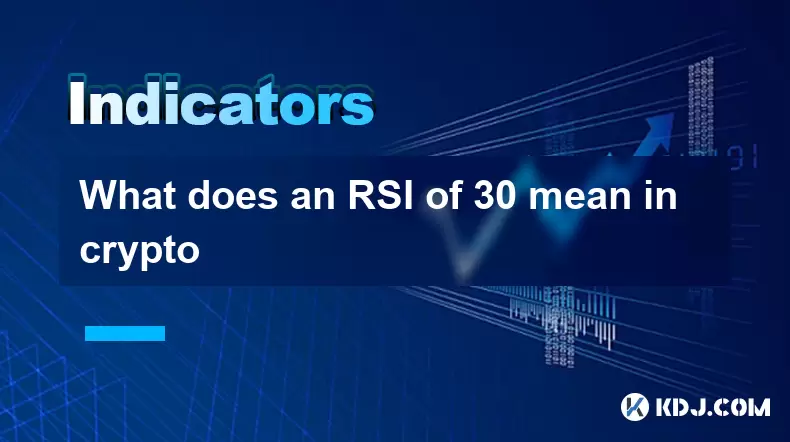
What does an RSI of 30 mean in crypto
Jul 15,2025 at 07:07pm
Understanding RSI in Cryptocurrency TradingRelative Strength Index (RSI) is a momentum oscillator widely used in cryptocurrency trading to measure the...
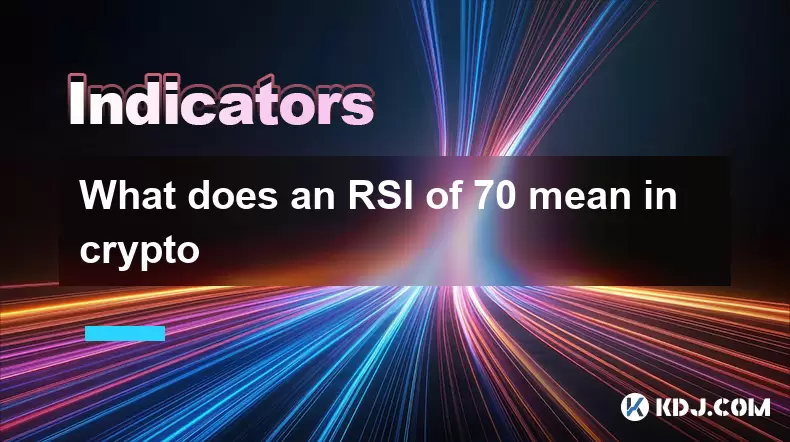
What does an RSI of 70 mean in crypto
Jul 13,2025 at 06:07pm
Understanding the RSI Indicator in Cryptocurrency TradingThe Relative Strength Index (RSI) is a widely used technical analysis tool that helps traders...
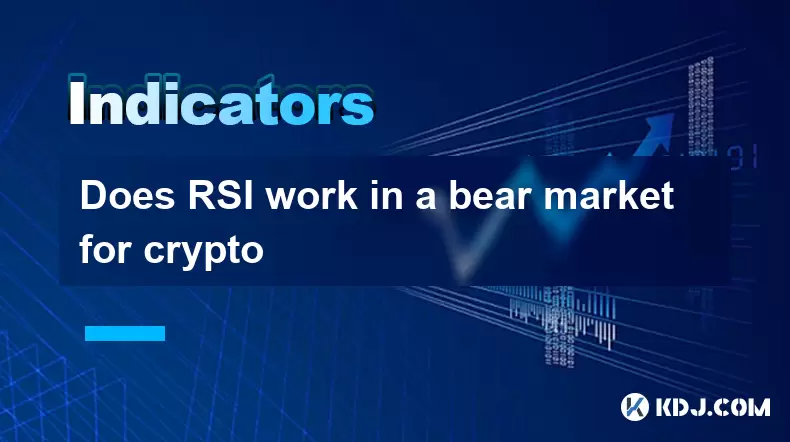
Does RSI work in a bear market for crypto
Jul 16,2025 at 01:36pm
Understanding RSI in Cryptocurrency TradingThe Relative Strength Index (RSI) is a momentum oscillator used by traders to measure the speed and change ...

Advanced RSI strategies for crypto
Jul 13,2025 at 11:01am
Understanding the Basics of RSI in Cryptocurrency TradingThe Relative Strength Index (RSI) is a momentum oscillator used to measure the speed and chan...

Crypto RSI for day trading
Jul 12,2025 at 11:14am
Understanding RSI in the Context of Cryptocurrency TradingThe Relative Strength Index (RSI) is a momentum oscillator used to measure the speed and cha...

Crypto RSI for scalping
Jul 12,2025 at 11:00pm
Understanding RSI in the Context of Crypto TradingThe Relative Strength Index (RSI) is a momentum oscillator widely used by traders to measure the spe...

What does an RSI of 30 mean in crypto
Jul 15,2025 at 07:07pm
Understanding RSI in Cryptocurrency TradingRelative Strength Index (RSI) is a momentum oscillator widely used in cryptocurrency trading to measure the...

What does an RSI of 70 mean in crypto
Jul 13,2025 at 06:07pm
Understanding the RSI Indicator in Cryptocurrency TradingThe Relative Strength Index (RSI) is a widely used technical analysis tool that helps traders...

Does RSI work in a bear market for crypto
Jul 16,2025 at 01:36pm
Understanding RSI in Cryptocurrency TradingThe Relative Strength Index (RSI) is a momentum oscillator used by traders to measure the speed and change ...
See all articles

























































































